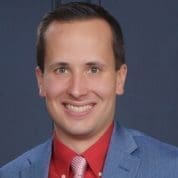
Doctors’ Notes
Real stories by real family physicians
When a loved one has dementia, your family doctor can be a trusted resource and partner in their care.
I’m a family doctor who practices in an area with a large population of older adults. People often ask me about memory loss and dementia (particularly Alzheimer dementia). This is not too surprising. The Alzheimer’s Association estimates that more than 5 million Americans 65 and older are currently living with Alzheimer dementia. That number may increase to nearly 14 million by 2050.
When someone is diagnosed with Alzheimer dementia, family members need complete information about the patient’s prognosis and care plan. (Learn more about planning for the future after a dementia diagnosis.) Support for caregivers’ well-being is also very important. Family doctors are trained to care for patients’ physical, mental, and emotional health through all stages of life. This means we are well-suited to partner with our patients and their families during this challenging time.
That brings me to the story of Maggie (not her real name). A few years ago, I was the guest speaker at a local support group meeting for caregivers of people who have dementia. Jack (not his real name) was at the meeting and heard me speak about my interest in dementia care. A short time later, he brought his wife Maggie to my office so I could be her new family doctor.
Jack told me that he and Maggie had been blessed with a loving, supportive marriage of more than 50 years. When Jack first noticed Maggie’s memory loss, he thought it was just a normal part of getting older. But her condition progressed quickly over the course of a couple of years. By the time she was officially diagnosed with Alzheimer dementia, she had advanced symptoms. Her communication had become almost nonverbal.
When I became Maggie’s doctor, I wanted to be sure Jack understood that there is no cure for Alzheimer dementia. I also wanted him to have realistic expectations about how Maggie’s condition would progress and what care she would need. (Learn more about caring for a loved one who has dementia.)
My interactions with Maggie and her family focused on a team approach to caring for her. Since she was already in the late stages of Alzheimer dementia, we shifted our goal from managing her medicines to preserving her identity and dignity. The future would not hold the outcome Jack wanted. But he found peace in knowing what to expect as the months went by. Simply put, there were no major surprises.
About a year after I met Maggie, Jack decided to move her into a nursing home facility that could meet her advanced care needs. He visited her every day, even though he knew she would not recognize him. Jack got help and support from a local Alzheimer’s Association chapter. He also regularly attended the support group for caregivers of people who have dementia. For several years, Jack had neglected his own health while taking care of Maggie. I helped him focus on self-care during this time. (Learn more about caregiver health and wellness.)
I wish Maggie’s story had a happy ending. Unfortunately, Alzheimer dementia can’t be cured and ultimately leads to death. Yet, I hope this story shows that your family doctor can be a trusted resource and partner if a loved one is diagnosed with dementia. My patients who have dementia and their families can rely on me to pay attention to the patient’s wishes, adjust care goals as necessary, and focus on maintaining dignity at the end of life.
Quick Tip
Talk to your family doctor at the first signs of memory lapses or foggy thinking in yourself or a loved one. An early diagnosis of dementia leads to earlier treatment. It will also give you time to plan ahead. It’s important to address questions about care, finances, and legal issues before dementia symptoms progress.
Resources
![]()
Copyright © American Academy of Family Physicians
This information provides a general overview and may not apply to everyone. Talk to your family doctor to find out if this information applies to you and to get more information on this subject.







